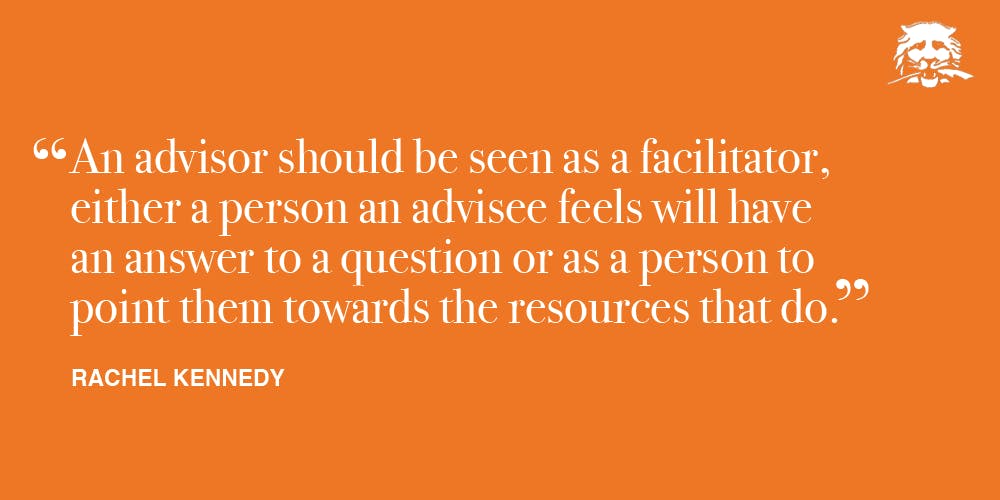I’ve been lucky to have an adviser who not only responds to my emails but also sets aside WASE appointments for his advisees and has made an effort to learn what I want out of my academic career. Most first-years cannot say that they feel they even know a faculty member, never mind have one that knows their name, hopes, wants, and dreams. Yes, Princeton prides itself on the focus on undergraduates, but I was not expecting that promise to be so fulfilled. I thought of anything I heard on a college tour as a campaign promise.
But Princeton has put productive measures in place to ensure that promise is fulfilled. First-years are required to meet with their advisers prior to registering for classes, which gives them three mandatory check-ins with a faculty member throughout the year. For practical reasons, these meetings ensure that course selections are thoughtful and that requirements are fulfilled, but more importantly, they establish a culture of taking control of one’s education by asking for help.
An adviser should be seen as a facilitator, either a person an advisee feels will have an answer to a question or a person to point them towards the resources that do. No, they are not here to vent about the woes of the social transition, and no, they won’t tell you exactly what to do, but they prompt students to make a plan and start asking questions within the first week of school. Their presence forces students to engage in their education in a way that many did or could not during high school.
These adviser meetings help ease students into navigating the academic side of Princeton but also provide crucial skills in interacting with professors and TAs. Comfort with one’s professors and with faculty members in general often relates to one’s upbringing and the size and type of their previous school. Different students come to Princeton with different degrees of exposure to the close relationships to faculty encouraged here, and the adviser connection serves as an introduction for those who may not have previously interacted with their educators.
Coming from a small private school, I arrived on campus accustomed to developing close relationships with faculty members. But through discussing those experiences with the random assortment of students within my ’zee group, I realized this was an entirely new kind of relationship to some. This is an often-overlooked difficulty, and the adviser system prepares students for these interactions from their first moments here.
I look forward to meeting with my adviser, but another resource that some students prefer to utilize is their residential college’s director of studies. While I did not understand this position when I arrived on campus, I now know through many friends that this position has created another accessible, non-intimidating faculty resource that is greatly appreciated and utilized. “You haven’t met with Cecily yet? Wow, work on that,” a fellow Mathey student said to me while talking about advisers at lunch last week. “It always surprises me and makes my day that Justine Levine knows every kid in Rocky by name,” I heard a Rockyite say about their director of studies while in line for dinner.
While I have been impressed with the academic advising options, I do acknowledge that some students feel they have not had the experience I have. Some advisers may not respond to their advisees’ emails or be easily accessible. And those experiences are to be taken seriously, especially if those students feel their academic journey here has been impaired as a result. I also know students, however, who do not view academic advising as an important aspect of their experience.
In order to ensure the quality of advising, a survey could be administered through TigerHub that follows one’s first year and assesses the impact advising has had on student performance and comfort. Such a step would enable the school to have a greater sense of the range of advising experiences and would also serve as a gauge for how many students prioritize academic advising. This information could point students who feel they have not received the counseling they desire towards the necessary resources, as well as provide students an active role in assessing and shaping guidelines to advisers and how advising is approached here at Princeton.

Rachel Kennedy is a first-year from Dedham, Mass. She can be reached at rk19@princeton.edu.









